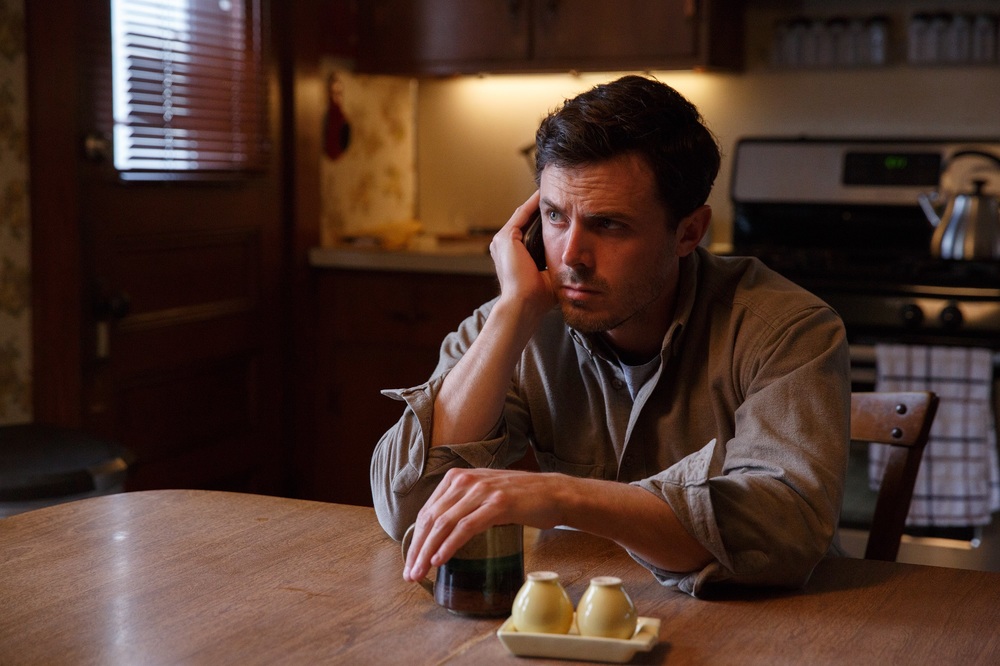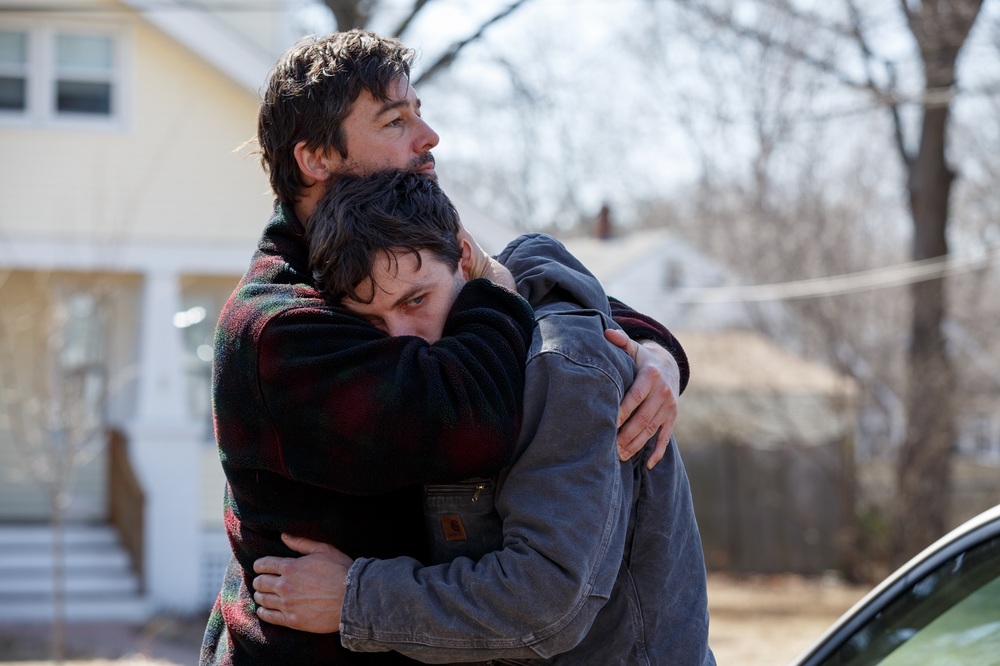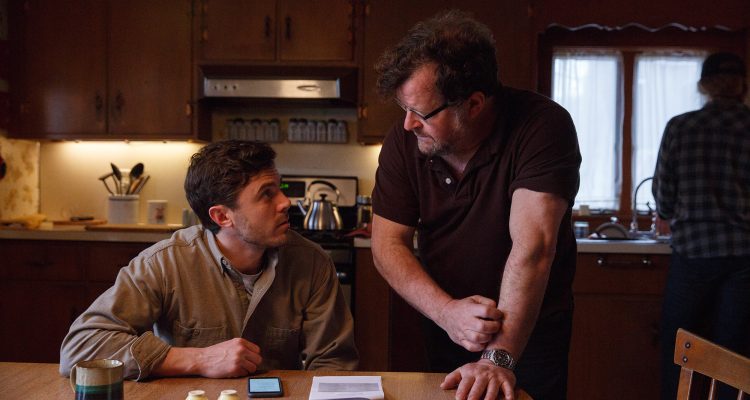As part of its “Written and Directed by Kenneth Lonergan“ series the Museum of the Moving Image screened the gripping “Manchester by the Sea” yesterday evening in its main theater space. After the film, guests were treated to a conversation between Lonergan and Tod Lippy, the executive director of Esopus, a literary and art publication.
READ MORE: Casey Affleck And Michelle Williams Star In The First Trailer For ‘Manchester By The Sea’
Whether or not you have context for Lonergan’s work as an important contemporary playwright or as a critically praised filmmaker, “Manchester by the Sea” is a triumph of subtle and controlled filmmaking. It portrays the ramifications of a life altering tragedy while being respectful to the human condition and the audience who experience it. This movie hurts, but it’s a beautiful kind of hurt that invokes one’s own personal struggles while at the same time making you laugh – really hard at times – as the stark Manchester blues and grays coat the screen like winter snow.
For this being only his third movie, Lonergan’s film career is already worthy of its own several episode docudrama. “You Can Count on Me” and its simple beauty was a highly-praised critical success and received dozens of award nominations, including an Academy Award nod for Best Screenplay; Lonergan seemed on the verge of something big.
Then came “Margaret,” Lonergan’s follow up film about the life of a young, somewhat entitled, high school girl and her role in an unexpected tragedy. The film was impressively cast with Mark Ruffalo (a Lonergan regular), in a small but pivotal role, and Anna Paquin as the lead. The production completed principal shooting in 2005. Then when the film hit the editing room, the problems started. A studio mandate to make sure the final cut was no longer than 150 minutes, proved to be an insurmountable task for the director. “Margaret” then spent a little over the next five years knee deep in lawsuits between Fox Searchlight and Lonergan with film financier Gary Gilbert. An intricate tale of art versus commerce ensued, the details of the legal battle being complex and fascinating. Even after a failed attempt by Martin Scorsese (who deemed the film a “masterpiece”) to cut his own version and get the movie seen, the film wasn’t actually released until 2011.

Although the film was again praised by critics, it had a very limited release and not many people saw it. A film that cost more than $12 million grossed only $46,495 in theaters. Although an underground critic movement helped get the film in more theaters and continues to give it cat-like additional lives, “Margaret” will never be able to separate itself from its lore. One can only speculate how an experience so fraught might have influenced Lonergan’s future work and process.
Based on an original idea from Matt Damon and John Krasinski, “Manchester By the Sea” tells the story of Lee Chandler (played captivatingly in a career-defining role by Casey Affleck), a tortured janitor who is called upon to be the guardian of his brother’s son after his sibling’s sad-but-expected death due to congestive heart failure. When Lee returns to his hometown, he faces the pain of past mistakes and tragedies, and the judgment of all those who look upon him. Michelle Williams, Kyle Chandler, Gretchen Mol round out the cast, while the young Lucas Hedges plays Patrick, Lee’s new charge, with understated brilliance.
Writer’s note: There are no spoilers below but there are specifics that add color to the traumatic events that take place in the film.
Well aware of Lonergan’s work, Lippy asked thoughtful questions about this film as well as Lonergan’s previous efforts. Answering all questions with sincerity and wit, Lonergan kept the audience rapt with interest well into the cold October evening.

Lippy made note of what he deemed the “very aggressive inter-cutting between past and present.” In response to whether that was a writing decision or an editing decision, Lonergan said, “It was in the writing process. It was the second draft of the script. The first draft wasn’t going very well so I started over. The second draft I took all the past events from the past instead of continuous narrative and I felt it worked much better that way and it’s been that way ever since.”
The cuts of “Manchester by the Sea” between past and present are thoughtfully considered, and Lonergan went on to discuss the editing. “My editor, Jennifer Lame and I really started to like this abrupt switch over. We do this a couple of times anyway where we show a shot of Casey thinking and then you cut to the flashback. We sometimes tried a pre-lap of hearing the dialogue. We do that a bit on some of the sections but for the most part, except for the ‘big memory’ section, it’s pretty abrupt and I don’t know why that felt right but it did seem to be right and it seemed to reflect his [Casey’s] experience,” he explained. “Then when we were doing the editing for the really big flashback it seemed to be good to mix-up when we were hearing sounds, whether we were hearing sounds from the office [present time] or when he was walking and hearing his footsteps [the past] and pre-lapping it and messing around with it. It seemed to be a natural thing to keep changing that up. I don’t know why. I think that is how he experiences things quite a lot, which is why it is so difficult for him to be [present in every day life].”
The final Lonergan approved cut of “Margaret” can be seen by some as an ode to the Upper West side of New York City and “You Can Count on Me” goes a little further upstate in New York. These two films, as well as “Manchester by the Sea” struck Lippy as being very site specific. Does Lonergan begin writing with a sense of place as being important in terms of where he will take a story or does that just serve as just a contextual tool? The answer he gave was “both.”

